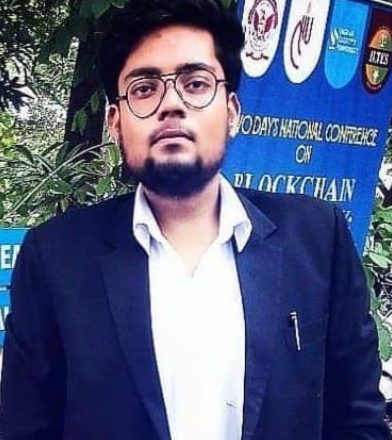Now Reading: Powers of Speaker of State Legislature in India
-
01
Powers of Speaker of State Legislature in India

Powers of Speaker of State Legislature in India
The Office of the Speaker is a respective position in our parliamentary democracy. It has been seen from the Office of the Speaker that when the members of Parliament represent the individual constituencies, the Speaker represents the full authority over the house . He symbolises the dignity and power of the House over which he is presiding. Therefore, it is expected that the holder of this Office of high dignity has to be one who can represent the House in all its demonstration.
POWERS AND FUNCTIONS OF THE SPEAKER:
There is a need for head or a supreme authority of every legislative part. The Speaker and Deputy Speaker performs the same purposes in the Legislative Assembly. Therefore Article 178 of the Indian Constitution have the provisions about the same. The Constitution contains identical provisions relating to the Speaker and Deputy Speaker of the Lok Sabha and their counterparts in the state legislative assemblies. It lays down only the main duties and power of the speaker. Which are as follows:
- To permit a member who cannot adequately express himself in Hindi or English or the official language of the state, to address the House in his mother tongue[1]
- To exercise a casting vote in the case of an equality of votes.[2]
- To determine whether a Bill is a Money Bill and to certify a Money Bill.[3]
- To preside over the House, whenever he is present in the House, excepting when a resolution for his removal from office is under consideration.[4]
- To adjourn the House when there is no quorum.[5]
The detailed duties and responsibilities of the speaker are laid down in the Rules of Procedure which each House is empowered to make under article 208 of the Constitution with, of course, the condition that such rules shall be “subject to the provisions of the Constitution”. Though the Rules of Procedure vary from state to state, the position in regard to the powers and functions of the speaker is more or less identical, as generally the rules of the assemblies in this behalf are modelled on the Lok Sabha Rules. The more important powers and functions of the speakers of state assemblies in general are briefly noted below.
As the principal spokesman of the House, the speaker represents its collective voice and is its sole representation to the outside people. His position as the presiding officer of the House is one of pivotal authority:
- He regulates the debates and proceedings of the House
- He is charged with the maintenance of order in the House and is equipped with all powers necessary for enforcing his decisions.
- He also works on points of order raised by members and his decision is final.
Various powers are conferred on the speaker in relation to asking questions to ministers. Though the guiding principles regarding admissibility of questions are prescribed in the rules and its interpretation is vested in the speaker. He has a general discretion in regard to the admissibility of resolutions and motions also, similar to the one relating to the admissibility of questions. He decides whether a motion expressing want of confidence in the Council of Ministers is in order. The speaker has also the power to select amendments in relation to Bills and motions, and can refuse to propose an amendment which in his opinion is trivial.
It is the fundamental duty of the speaker to maintain an order in the house. He derives his disciplinary powers from the rules, and the decisions taken by him in matters of discipline are not to be challenged except on a substantive motion. He may direct any member guilty of disorderly conduct to withdraw from the House, and name a member for suspension if the member disregards the authority of the chair and persists in obstructing the proceedings of the House. The speaker also has the power that he may also adjourn or suspend the business of the House in case of grave disorder.
To enable the speaker to deal with unexpected situations and regulate matters of detail, the rules expressly vest “residuary powers” in him.
In fine, the Rules of Procedure and Conduct of Business in the state assemblies confer wide discretionary powers on the speaker. The rules have been codified on the premise that the speaker’s chair would be occupied by scrupulously dispassionate and impartial persons. The speaker’s supreme authority inside the House is based on his absolute and unvarying impartiality and all the powers vested in him are intended to enable him to ensure the smooth functioning of the House. Therefore, in no case would it be justified for a speaker to use his powers arbitrarily or in such a manner as to prevent the House from functioning.
Suitable safeguards are provided in the Constitution to ensure that Parliament and the state legislatures can perform their legitimate functions without any outside interference. For instance, the validity of any proceedings of Parliament or state legislatures cannot be called in question on the ground of any alleged irregularity of procedure. Further, no officer or member of Parliament in whom powers are vested by or under the Constitution for regulating the procedure or the conduct of business, or for maintaining order in Parliament or the state legislatures, shall be subject to the jurisdiction of any court in respect of the exercise by him of those powers[6].
JUDICIAL PRECEDENTS vis-à-vis PARLIAMENTARY PRIVILEDGES:
No member of Parliament or a state legislature is liable to any proceedings in any court in respect of anything said or any vote given by him in Parliament or a state legislature[7]. The position envisaged in these provisions of the Constitution has been upheld by the courts in our country which have recognised that a House of Parliament or a state legislature is the sole authority to judge as to whether or not there has been a breach of its privilege in a particular case.
In Tej Khan v. Sanjiva Ready[8] the Delhi High Court had held that no proceedings could be taken in a court of law in respect of what is said during the session of Parliament in view of article 105 (2) of the Constitution. The speaker, in proper exercise of his authority as the custodian of the rights and privileges of the House, advised the members concerned not to appear before the Supreme Court and later on the Supreme Court dismissed the appeal by Tej Kiran Jain and others. Chief Justice Hidayatullah said in his judgment that article 105 (2) of the Constitution gave complete immunity to members for anything said in Parliament. This immunity was not only complete but was as it should be. It was the essence of the parliamentary system that the representatives of the people should be free to express themselves without fear of legal consequences. What they said was only subject to the discipline of the rules of Parliament, the good sense of the members and the control of proceedings by the speaker.
SPEAKER CANNOT USE HIS POWERS ARBITRARILY:
Committee of Presiding Officers, headed by V. S. Page, Chairman of the Maharashtra Legislative Council, in its report submitted to the Conference of Presiding Officers of Legislative Bodies in India, held in October 1968. The committee, inter alia stated:
The principal duty of the Speaker is to regulate the proceedings of the House and to enable it to deliberate on and decide the various matters coming before it. Thus, in considering the various notices or points raised before him or adjournment of the sitting or placing matters before the House and the like, the Speaker should always bear this in mind and, where in doubt, he should act in favour of giving an opportunity to the House to express itself. The Speaker should not so conceive his duties or interpret his powers as to act independent of the House, or to override its authority or to nullify its decisions. The Speaker is a part of the House, drawing his powers from the House, and in the ultimate analysis a servant of the House, not its master[9].
It was held that on December 13, 1972, the Tamil Nadu Deputy Speaker, M.P. Srinivasan, who had been served with a notice by the Madras High Court, to appear before the court in a case filed by K.A. Mathialagan, challenging his removal from the office of the speaker, declined to do so. Claiming privilege under the provisions of article 212, he said that he could not be and did “not propose to be subject to the authority of any Court in the exercise of my powers and in the performance of my functions[10].
In no case would it be justified for a speaker to use his powers arbitrarily or in such a manner as to prevent the House from functioning. Insofar as the duties and responsibilities of the speaker in India and his relations with the House are concerned.
SPEAKER’S ADMINISTRATIVE ROLE:
The Speaker is the head of the Lok Sabha Secretariat which functions according to his remaining command and direction. The Speaker’s authority over the Secretariat workforce of the House, its precincts and its safety arrangements is supreme. All strangers, site visitors and press correspondents are subject to his decoram and orders and any breach of it may be punished by exclusion from the precincts of the Parliament House or stoppage of admission tickets to the galleries for precise or indefinite period, or in extra critical cases, handled as a contempt or breach of privilege. No alternation or addition can be made inside the Parliament House and no new structure may be erected within the Parliament Estate without the Speaker’s permission.
CONCLUSION:
The Office of the Speaker in India is a sentient and dynamic organization which deals with the real wants and issues of Parliament in the performance of its functions. The Speaker is the constitutional head of the House. He is the predominant spokesperson of the House. It is in him that the responsibility of carrying the working of the House in a way befitting the place of the organization in a representative democracy is invested. The founding fathers of our Constitution had recognized the importance of this Office in our democratic set-up and it turned into this reputation that guided them in establishing this Office as one of the outstanding and dignified ones within the scheme of governance of the country. Pandit Jawaharlal Nehru, one of the leader architects of India’s freedom and a moving force at the back of its Constitution, placed the Office of the Speaker in India inside the right context when he said:
The Speaker represents the House. He/He represents the dignity of the House, the freedom of the House and because the House represents the nation, in a particular way, the Speaker becomes a symbol of nation’s freedom and liberty. Therefore that should be an honoured position, a free position and should be occupied always by persons of outstanding ability and impartiality.
References:
[1] Article 210, The Constitution of India
[2] Article 189(1), The Constitution of India
[3] Article 199(3) and (4), The Constitution of India
[4] Article 181 (1), The Constitution of India
[5] Article 189(4), The Constitution of India
[6] Articles 122 and 212, The Constitution of India
[7] Articles 105(3) and 194(2), The Constitution of India
[8] A.I.R. 1970 S.C. 1573
[9] Report of the Committee of Presiding Officers (Con. No. 201), Lok Sabha Secretariat, New Delhi, September 1968, para 35.
[10] The Hindu, 14.12.1972
Author: Rishabh Mishra, Legal Intern at Legal Desire (June 2020)










